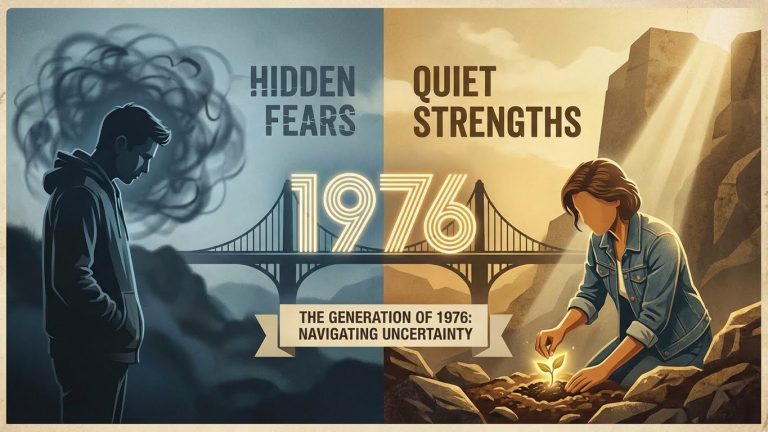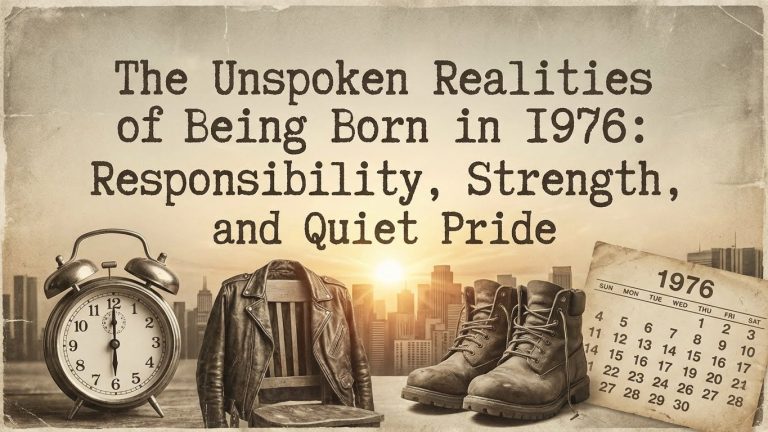It’s not about thinking less — it’s about trusting more.
Introduction: Why We Stay Stuck in Our Heads
You try to let it go.
You tell yourself it doesn’t matter.
You replay it anyway — the conversation, the decision, the worry.
“I think too much.”
“Why can’t I just stop overthinking?”
You’re not alone.
In the age of information overload, overthinking is more common than ever. And while most advice tells you to “just stop thinking so much” — the truth is, that doesn’t work.
Why?
Because most people miss one simple truth:
Overthinking isn’t a thinking problem. It’s a trust problem.
You don’t need to fight your thoughts. You need to rebuild your relationship with uncertainty, self-trust, and emotional safety.
Part 1: What Overthinking Really Is (It’s Not What You Think)
Let’s get one thing clear:
Thinking is not the enemy.
Thinking helps us:
- Plan wisely
- Reflect deeply
- Solve problems creatively
But overthinking is something else. It’s not real thinking. It’s mental stalling.
It looks like:
- Repeating the same thoughts without resolution
- Trying to predict or control every possible outcome
- Imagining worst-case scenarios
- Mentally rehearsing conversations endlessly
- Procrastinating under the illusion of “being responsible”
Overthinking is a coping mechanism.
It makes you feel like you’re being careful — but really, you’re avoiding action, risk, or feeling something uncomfortable.
Part 2: The Simple Truth Most People Miss
Most people try to fix overthinking by doing this:
- More journaling
- More pros and cons lists
- More advice-seeking
- More analysis
But that’s like trying to put out a fire with gasoline.
Because here’s the simple truth:
You overthink because you don’t trust yourself to handle what might happen.
That’s it.
Let it land.
You don’t trust that if you:
- Make the wrong decision, you’ll be okay
- Say the wrong thing, you’ll recover
- Try and fail, you’ll grow
- Lose something, you’ll rebuild
So you stay in your head — trying to calculate your way into a future with zero risk.
But zero-risk living is not living at all. It’s paralysis.
Part 3: Overthinking Is a Sign of Self-Distrust
We think we overthink because:
- We’re logical
- We’re detail-oriented
- We just want to be sure
But deep down, it’s usually this:
- “I don’t trust myself to make the right decision.”
- “I don’t trust myself to deal with rejection.”
- “I don’t trust myself to survive failure.”
- “I don’t trust myself to be okay if things go wrong.”
The mind spins because the heart is uncertain.
And the antidote to overthinking isn’t mental clarity — it’s emotional safety.
Part 4: The Real Roots of Self-Distrust
Where does this lack of trust come from?
For many people, it’s deeper than they realize.
🔁 1. Perfectionism Conditioning
You learned that mistakes = failure, and failure = unworthiness. So your brain now treats every decision like a high-stakes exam.
🧊 2. Emotional Repression
If you weren’t taught how to feel and process emotions safely, your brain now tries to think its way through everything — avoiding emotion at all costs.
❌ 3. Criticism or Shame in Childhood
If you were often criticized, dismissed, or made to feel like you “should’ve known better,” you may have internalized the belief that your choices are not to be trusted.
🤐 4. Social Anxiety or People-Pleasing
When your worth feels dependent on how others see you, every move feels dangerous. Overthinking becomes a way to “pre-edit” your life before anyone can judge it.
Part 5: What Actually Helps (And It’s Not Thinking Less)
Let’s be real: You can’t force yourself to stop thinking.
The more you try, the louder the mind gets.
But you can stop feeding the overthinking loop by focusing on trust-based action.
Here’s how:
✅ 1. Practice Micro-Trusting Decisions
Start with low-stakes choices:
- Pick the restaurant without second-guessing
- Wear what you want without overthinking how it looks
- Send the text without rereading 5 times
The goal: Build a track record of small trust wins. Your brain will start to update its belief: “Hey, maybe I can handle this.”
✍️ 2. Journal to Rewire Self-Belief
Prompt:
What am I afraid will happen? And if it does — what would I do?
This lets you meet the fear with self-compassion and evidence. It shrinks the imagined disaster into something manageable.
💬 3. Speak Your Fears — Don’t Just Think Them
Talk to someone safe. Not to get answers, but to hear your fear out loud.
Often, when you say it:
“I’m scared I’ll mess this up and people will think I’m stupid.”
You realize:
- That fear is human
- It’s survivable
- It’s not a reason to freeze
💪 4. Feel the Fear — And Move Anyway
You don’t need confidence to act.
You need willingness.
Confidence comes after the doing. The trick is not to feel brave — it’s to do the thing while scared, while uncertain, while messy.
Progress doesn’t come from better thinking. It comes from braver doing.
🌱 5. Redefine “Wrong”
The fear of overthinking comes from believing that there’s one right answer and if you don’t find it, you’ll regret it forever.
But most decisions aren’t permanent. Most choices are learning opportunities.
You’re not a robot making calculations. You’re a human making evolving choices.
Part 6: The Breakthrough Question
Next time you’re caught in an overthinking loop, pause and ask yourself:
What am I trying to avoid feeling right now?
- Is it the discomfort of uncertainty?
- The pain of possibly disappointing someone?
- The vulnerability of being seen?
When you name the feeling, you shift from mental defense to emotional courage.
And that’s where freedom lives.
Conclusion: You Don’t Need to Think Less — You Need to Trust More
Overthinking isn’t a flaw. It’s a protection strategy.
It means your brain is trying to keep you safe — but in doing so, it’s also keeping you small.
The real way forward isn’t more logic, more analysis, or more information.
It’s trusting that whatever happens — you can handle it.
That trust is built one choice at a time:
- One risk
- One brave step
- One self-reminder that “I’ve got me, no matter what.”
You don’t need to kill your thoughts.
You just need to stop letting them lead your life.
Let them speak.
But let trust make the decision.











